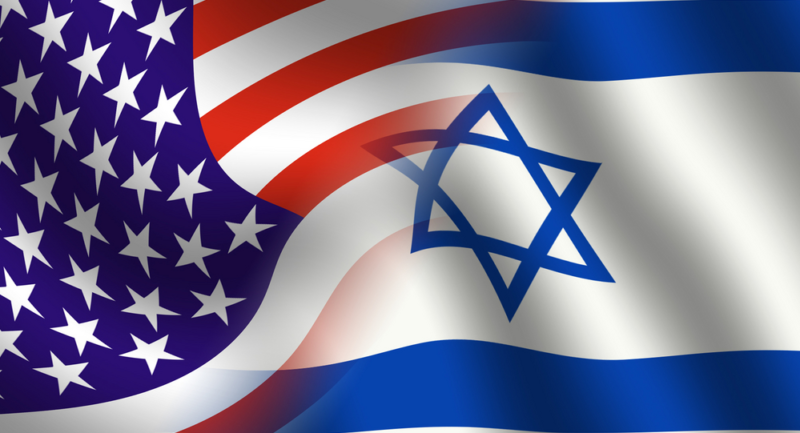Opinion
Jewish Peoplehood
Education essential to Israeli-Diaspora relations
In Short
American Jewish educators, whether inside the classroom or outside, must revisit and enrich Israel education
American and Israeli Jews live thousands of miles apart, speak different languages, and have significantly different cultures. In many ways, it is a testament to the power of Jewish peoplehood that the world’s two largest Jewish communities remain connected at all.
But, while new American Jewish Committee (AJC) surveys of American and Israeli Jews show that the Israel-Diaspora bond is still strong, it is weakening particularly among younger and more secular Jews in each center. While reasons for these fraying ties are complex and deserving of study on their own, a significant contributing factor is the lack of education about each other’s communities. In fact, the surveys serve as a clarion call to make education about each other’s communities an urgent priority.


eJP Archives
Israel Education in America
82% of American Jews reported receiving some Israel education, but the quality of that education varies widely. Only 37% of American Jews describe the education they received about Israel as strong. Those who rated their education highest were those who attended Jewish day school, received education in multiple fora (e.g., school, camp, youth groups, and synagogue) and have been to Israel.
When asked four basic literacy questions about Israel, only 16% of American Jews answered all of them correctly, a number that rose to only 48% among those who reported receiving strong Israel education. Those who reported that the goal of their Israel education was making them better Israel advocates had far lower literacy rates than those who reported the goal as fostering feelings of attachment to, or literacy about Israel.
Adding to the mix, American Jews’ knowledge of Hebrew is poor. While Hebrew knowledge is growing, only 23% of those ages 18-39 report any fluency, and an additional 42% can read phonetically with little to no comprehension.
Diaspora Education in Israel
Only 11% of Israeli Jews reported that their education about Diaspora Jewry was comprehensive, and 32% received none at all, statistics that are noteworthy considering that Israel’s Ministry of Education imposes Jewish educational curricular requirements. When asked three basic literacy questions about Diaspora Jewry only 13% of Israelis answered all correctly. Religious affiliation has an impact: Haredi Israelis reported the strongest education about Diaspora Jewry, as well as the strongest connection.
Israeli Jews particularly lack cultural understanding of Diaspora Jewry. Among the 75% who say a thriving Diaspora is vital, 60% see the main value of the relationship as transactional, whether it is Diaspora Jews advocating for Israel with their governments or supporting Israel with funding. Only 27% said the main value of the Diaspora was that variety adds to the strength of the Jewish people, and 6% said that the Diaspora fosters Jewish creativity in a different way than Israeli life.
Although nearly half of Israelis stated that they understand antisemitism in the Diaspora well, less than a quarter report understanding the denominations of American Judaism well. While antisemitism is a growing concern for world Jewry, true knowledge of the American Jewish community, who make up over 80% of Diaspora Jewry, requires a deep understanding of our culture, beliefs and practices, and not only the struggles we face.
The Value of Good Education
Both surveys found that more opportunities for a better quality education predicted a greater emotional connection. Among Israeli Jews, 79% of those who reported their Diaspora education was comprehensive said that Diaspora Jewry was vital, as opposed to 66% of those who received no education about the Diaspora. Among American Jews, 73% who reported their Israel education as strong said that being connected to Israel was important to their Jewish identity, compared to 46% of those who received no education about Israel.
Furthermore, the stronger the education about the other community, the more likely people were to seek out more. 62% of Israelis who received comprehensive education about the Diaspora are interested in learning more, compared to 29% of those who received no education about Diaspora Jewry. American Jews who reported receiving strong Israel education were far more likely to take a course about Israel in college or seek out Israel programming at Hillel than those who reported their education as weak or non-existent.
Next Steps
American Jewish educators, whether inside the classroom or outside, must revisit and enrich Israel education. Are they teaching students about modern Israeli society and the vibrancy of modern Hebrew? Are they sparking curiosity in students, whetting their appetites for continued engagement with Israel post high school and beyond? No one needs to reinvent the wheel. We are blessed to live in a time when excellent and nuanced Israel studies materials and teacher training are easily accessible.
As for Israel, with the new government’s stated commitment to strong relations with the Diaspora, it is time to institute a robust curriculum about Diaspora Jewry in Israeli Jewish schools. Educators must take care not to fall into tropes of “shlilat hagolah” (negation of the Diaspora) by emphasizing antisemitism and assimilation over the vibrancy and creativity of Jewish life in America and other Diaspora centers. Israel should expand offerings for post-high school students to learn about Diaspora Jewry to match Israel engagement opportunities available to American college students.
Improving the reach and content of Israel education in America and Diaspora education in Israel must be an urgent priority. AJC’s surveys give a holistic picture as to where improvement is needed to raise understanding about the richly complex Jewish communities in each center and to nurture opportunities for American and Israeli Jews to be lifelong learners about one another.
Laura Shaw Frank is American Jewish Committee (AJC) Director of Contemporary Jewish Life.












